Residency Program in Internal Medicine
Program Overview
The NUSOM Internal Medicine Residency is a 3-year program aimed at training medical doctors to become general internist that will be able to work in the hospital setting or as general practitioners in Internal Medicine.
This Program will educate skilled internists, according to the Accreditation Council for Graduate Medical Education (ACGME) core competencies.
Learning Outcomes
By the end of the Internal Medicine Residency program candidates should be able to achieve the graduation target in the majority of the ACGME Milestones for Internal Medicine, as follows:
1. Patient care and procedural skills:
- ability to manage patients, in a variety of health care settings including the critical care units, the emergency setting and the ambulatory setting
- using clinical skills of interviewing and physical examination as well as using the laboratory and imaging techniques appropriately
- demonstrating competence in the performance of common used medical procedures and treating patient’s conditions with practices that are safe, scientifically based, effective, efficient, timely, and cost effective
2. Medical knowledge:
- demonstrate knowledge of the broad spectrum of clinical disorders seen in the practice of general internal medicine
- to demonstrate sufficient knowledge evaluate patients with an undiagnosed and undifferentiated presentation
- treat medical conditions commonly managed by internists
- appropriately use and perform diagnostic and therapeutic procedures
3. Practice-based learning and improvement:
- identify strengths, deficiencies, and limits in one’s knowledge and expertise
- systematically analyze practice using quality improvement methods, and implement changes with the goal of practice improvement
- locate, appraise, and assimilate evidence from scientific studies related to their patients’ health problems
4. Interpersonal and communication skills:
- communicate effectively with patients, families, and the public, as appropriate, across a broad range of socioeconomic and cultural backgrounds
- communicate effectively with physicians, other health professionals, and health related agencies
- work effectively as a member or leader of a health care team or other professional group
- act in a consultative role to other physicians and health professionals
5. Professionalism:
- demonstrate compassion, integrity, and respect for others
- responsiveness to patient needs that supersedes self-interest
- demonstrate respect for patient privacy and autonomy
- accountability to patients, society and the profession
- sensitivity and responsiveness to a diverse patient population, including but not limited to diversity in gender, age, culture, race, religion, disabilities, and sexual orientation
6. System-based practice:
- work effectively in various health care delivery settings and systems relevant to their clinical specialty
- coordinate patient care within the health care system relevant to their clinical specialty
- incorporate considerations of cost awareness and risk-benefit analysis in patient and/or population-based care as appropriate
- advocate for quality patient care and optimal patient care systems
- work in inter-professional teams to enhance patient safety and improve patient care quality
- participate in identifying system errors and implementing potential systems solutions
- work in teams and effectively transmit necessary clinical information to ensure safe and proper care of patients including the transition of care between settings
Clinical rotation sites
During the training, residents will rotate through a variety of general internal medicine and subspecialty inpatient services and outpatient clinics. All the clinical activities will be carried out in the following
Hospitals/Centers:
- Adult City Hospital 1;
- Adult City Hospital 2;
- MC Hospital of the President’s affair;
- Republican Diagnostic Center (RDC);
- Policlinic 4;
- National Scientific Medical Center;
- National Cardiac Surgery Center;
- Astana City Oncological Center;
- Tuberculosis Hospital;
- Adult Infectious Diseases Hospital.
- City ambulance center
Program structure
| PGY-1 Year | Hospital | Number of weeks |
| 1. General Internal Medicine | MC Hospital of President’s affair | 8 weeks |
| 2. Infectious Diseases-Inpatient | Adult Infectious Diseases Hospital | 4 weeks |
| 3. Pulmonology | Adult City Hospital 2 | 8 weeks |
| 4. ICU-()-4 weeks | Adult City Hospital 2 | 4 weeks |
| 5. Dermatology –Outpatient | RDC | 4 weeks |
| 6. Radiology | Adult City Hospital 2 | 4 weeks |
| 7. Accident and Emergency | Adult City Hospital 1 and 2 | 8 weeks |
| PGY-2 Year | Hospital | Number of weeks |
| 1.Cardiology-Inpatient | Cardiac Surgery Center | 8 weeks |
| 2. Tuberculosis-Inpatient+ Outpatient
|
TB Hospital | 4 weeks |
| 3. Nephrology-Inpatient | City Hospital 1 and National Scientific Medical Center | 8 weeks |
| 4. Oncology-Inpatient and outpatient | Astana City Oncological Center | 8 weeks |
| 5. Neurology and stroke unit | City Hospital 1 | 8 weeks |
| 6. Internal Medicine Outpatient | Policlinic 4 | 4 weeks |
| PGY-3 Year | Hospital | Number of weeks |
| 1) Cardiac-ICU
|
Cardiac Surgery center | 4 weeks |
| 2) Endocrinology-Outpatient | Republican Diagnostic Center | 4 weeks |
| 3) Rheumatology-Outpatient | Republican Diagnostic Center | 4 weeks |
| 4) Gastroenterology and Hepatology-Outpatient | Policlinic 4 | 4 weeks |
| 5) General Internal Medicine-Inpatient
|
MC Hospital of President’s affair | 4 weeks |
| 6) Two Electives of 10 weeks (Research, Allergy and Immunology, Nephrology/HD, Pulmonology, Cardiology, Neurology, Hemato-Oncology, Infectious Diseases and Tuberculosis). | Adult City Hospital 1
-Adult City Hospital 2 -MC Hospital of the President’s affair -Republican Diagnostic Center (RDC) -Policlinic 4 -National Scientific Medical Center -National Cardiac Surgery Center -Astana City Oncological Center -Tuberculosis Hospital -Adult Infectious Diseases Hospital |




